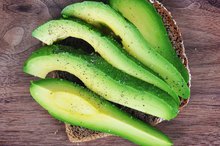What does fact checked mean?
At Healthfully, we strive to deliver objective content that is accurate and up-to-date. Our team periodically reviews articles in order to ensure content quality. The sources cited below consist of evidence from peer-reviewed journals, prominent medical organizations, academic associations, and government data.
- MedlinePlus Medical Encyclopedia: Taking Warfarin (Coumadin)
- National Institutes of Health Office of Dietary Supplements: Vitamin C
- Linus Pauling Institute at Oregon State University: Vitamin C
- MedlinePlus Medical Encyclopedia: Vitamin C
The information contained on this site is for informational purposes only, and should not be used as a substitute for the advice of a professional health care provider. Please check with the appropriate physician regarding health questions and concerns. Although we strive to deliver accurate and up-to-date information, no guarantee to that effect is made.
Does Vitamin C Affect Coumadin?
Coumadin, a medicine also known as warfarin, helps to prevent blood clots. Doctors may prescribe Coumadin for people who have had blood clots or have a high risk of developing blood clots, such as those with abnormal heart rhythms or other heart problems. Vitamin C can have a negative effect on warfarin’s function, but only when consumed in very large amounts.
Vitamin C and Coumadin
Some evidence has shown that too much vitamin C from supplements and food can decrease Coumadin’s effectiveness, according to MedlinePlus 4. But decreasing this medication’s effectiveness can put some people at greater risk of blood clots. The evidence regarding vitamin C's interaction with Coumadin remains controversial, however, according to the Linus Pauling Institute at Oregon State University 3. Furthermore, the University of Maryland Medical Center suggests that doses of vitamin C up to 1,000 milligrams per day have had no effect on Coumadin's function.
Precautions
Foods High in Iron That Will Not Interfere With Coumadin
Learn More
If you are taking Coumadin, talk to your doctor about taking vitamin C supplements or eating foods rich in vitamin C. Have your blood tested regularly to check the effectiveness of Coumadin. This way, your doctor can monitor the medication’s effectiveness and change your dose if necessary, notes MedlinePlus. Finally, inform your doctor of any recent vitamin C or other supplement use, because high intakes of vitamin C may interfere with the interpretation of some laboratory test results, notes the Linus Pauling Institute 3.
Dose
Limit your intake of vitamin C to 1 gram, or 1,000 milligrams, per day while taking Coumadin, recommends the Linus Pauling Institute 3. This amount far exceeds the minimum recommended daily intake of 90 milligrams for men 19 and older and 75 milligrams for women 19 and over, and leaves room for commonly used supplementary doses.
Other Potential Interactions
Can You Eat Chocolate While Taking Coumadin?
Learn More
A variety of foods can alter Coumadin’s function in your body, including mayonnaise, cooking oils, green, leafy vegetables, cranberry juice and green tea, according to MedlinePlus Medical Encyclopedia 14. Some over-the-counter or prescription medications may have negative interactins with Coumadin, so discuss any medications you are taking with your doctor. Do not drink alcohol while taking Coumadin. Vitamin C can increase the side effects of estrogens and decrease the effectiveness of fluphenazine, cancer medications, AIDS medications and cholesterol-lowering medications. Vitamin C can also have minor interactions with Tylenol, aspirin, choline magnesium trisalicylate, nicardipine, nifedipine and salsalate, according to MedlinePlus 4.
Related Articles
References
Writer Bio
Lisa Porter began writing professionally in 2009. She writes for various websites and has a Bachelor of Arts in English literature.









